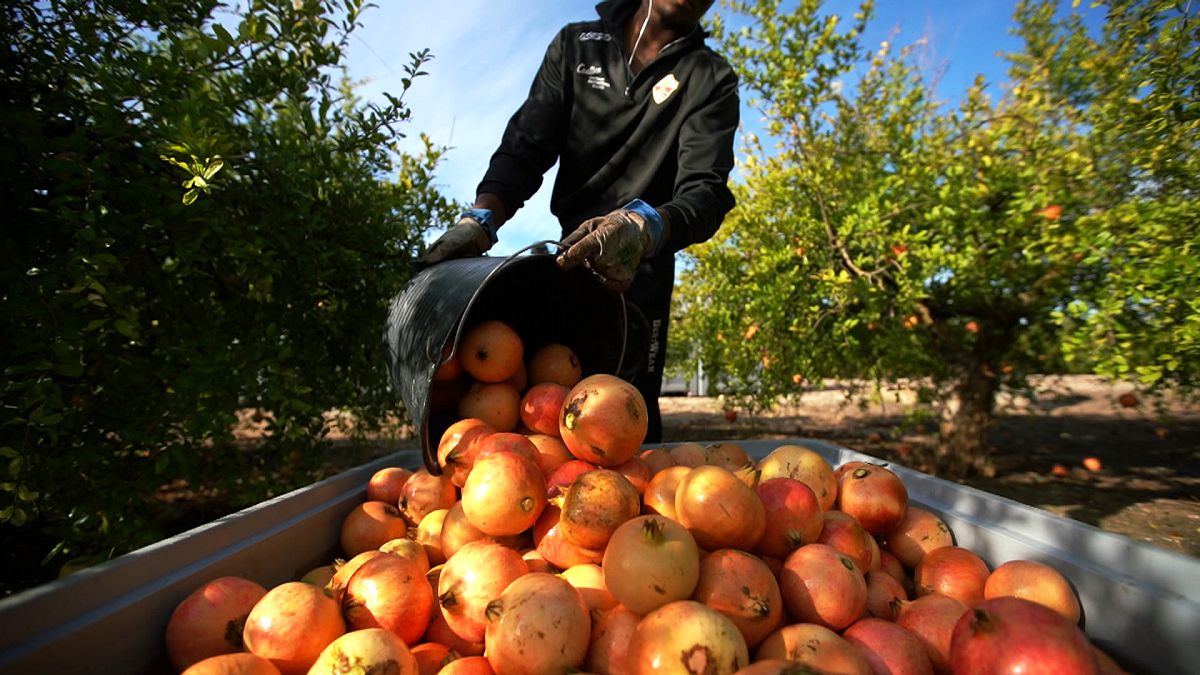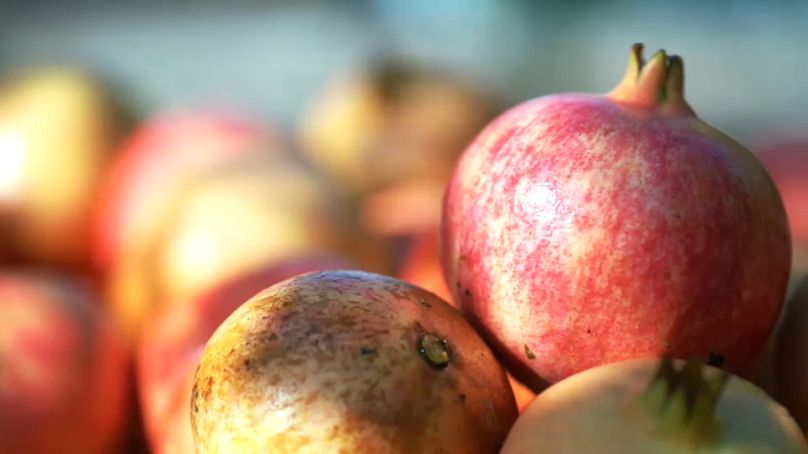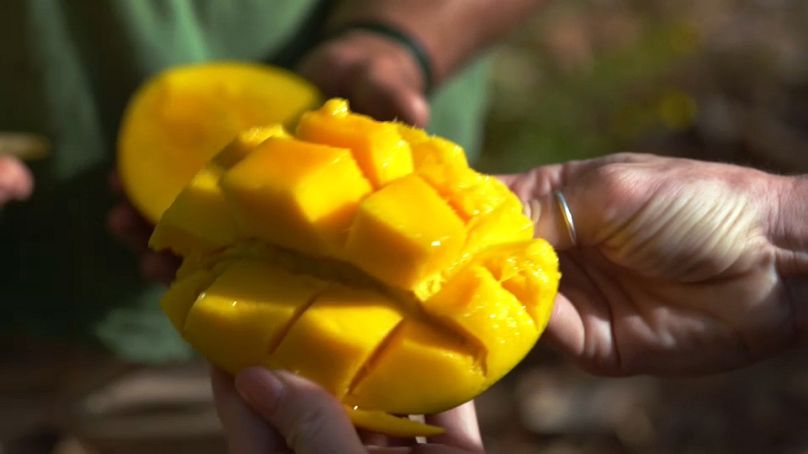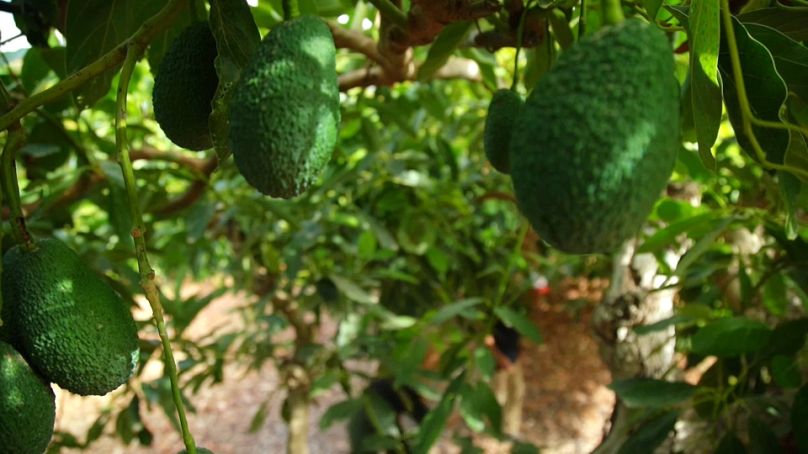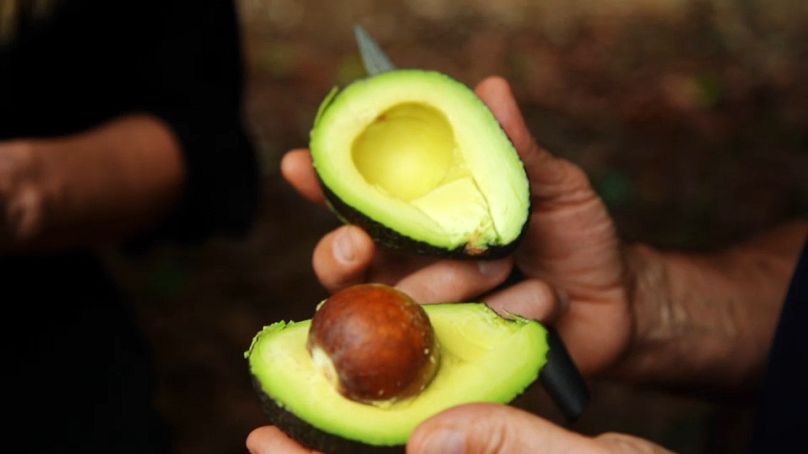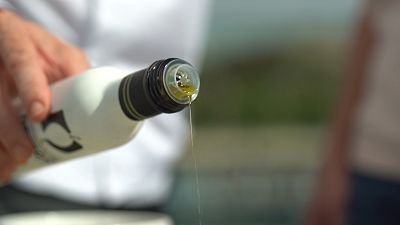During our trip, we’ll take you from the Autonomous Community of Valencia to the very south of Spain, in Andalusia, to discover the world's most valuable pomegranates, the superfruit Granada Mollar de Elche. And the perfect subtropical climate to grow mangos and avocados…which taste so good…
In the southeast coast of Spain, a few kilometres from Alicante’s golden beaches, the incredible Mediterranean climate allows the production of fruits with excellent flavour and nutritional properties.
During this episode of Here We Grow, we’ll take you from the Autonomous Community of Valencia to the very south of Spain, in Andalusia, to discover some characteristic fruits that led to an agricultural revolution in the country.
The sweet and pinkish Granada Mollar de Elche
Low precipitation, high levels of sunshine, and a high number of days with no clouds at all are the perfect conditions to grow one of the world's most valuable pomegranates: the Granada Mollar de Elche, which has the Protected Designation of Origin label.
It’s a very specific variety of pomegranate, different from all the others, thanks to its particular sweetness and other characteristics, as Susi Bonet, commercial director of the Cooperativa Cambayas, explains to us.
“This pomegranate is different from all the others because of its exterior and interior colour. It has a pinkish colour on the outside, this pomegranate is never red and inside the seed is red. The seed is sweet, and soft, and it can be eaten. Not like other varieties which are also eaten a lot all over Europe, in which the seed cannot be chewed. This pomegranate is pink on the outside, it is never red, and inside the seed is red".
Once the pomegranates have been picked on the field, they are taken to the pack houses, where they are carefully selected, packaged, and kept at a temperature of 4 to 8 °C. Preparation and packaging at source also guarantees traceability: the packaging in which they are dispatched must bear the particulars that are mandatory for the Protected Designation of Origin and the origin of the product, as prescribed by the single control system in operation up until dispatch to the final consumer.
From here they start their long trip, to shops and markets across Europe. Spain is the main pomegranate producer in the EU and the Elche area accounts for 75% of the national production.
Andalusia, the kingdom of tropical fruits
This exotic fruit is not the only one exported widely by Spain. Andalusia, where for almost 300 days a year you can see the sun, is called the "European tropical fruit vegetable garden", thanks to the perfect subtropical climate to grow mangos and avocados, which taste so good.
Due to its richness in vitamins, its sweetness, and the lack of fibre, mango is a distinctive fruit and it’s now considered native to Spain. As Juan Antonio Reyes, CEO at Reyes Gutiérrez, explains to us, the cultivation of this fruit has indeed a long story.
"Well, the cultivation of tropical fruits dates back to the 70's approximately, when the cultivation of avocado mainly started, and from the 80s onwards, the cultivation of mango started. Both avocado and mango were originally grown in the Canary Islands and were brought to Spain around this time”.
Unlike other producing countries that transport the fruit green - so that it ripens during the weeks-long journey - here mangos, after being harvested, in less than 48 hours are available in the markets. A real characteristic of these Spanish fruits.
"Well, I think the main thing is the proximity to the market”, Reyes tells us. “Being so close to the market means that you can pick the mango at the optimum moment of ripening and take it to the market in an optimum state for consumption. And obviously, a fruit that is bought a few kilometres away has a much smaller carbon footprint".
There is a tropical fruit that more than others has driven in recent years a revolution in the kitchen and has become so "fashionable": the avocado.
Extremely rich in fibres, minerals, and vitamins, it also contains healthy fats, fundamental to the Mediterranean diet and whose versatility to combine with any dish gives it unique advantages, as Enrique Colilles, CEO of TROPS, says to Euronews.
“Food based on avocado alone covers the needs of a human being to live, for trace elements, minerals, it has iron, it has potassium, it has magnesium, it has fat which is fundamental for us to live, good fat, it really fulfills all the fundamental requirements of a human being”.
Thanks to the multiple benefits, this superfood is increasingly consumed in Spain - the largest producer in the continent - and in the European Union.
“In the last few years, both in Europe and in Spain the per capita consumption of avocado is increasing a lot”, Colilles, explains.
“People are seeing how it can be consumed, they are appreciating the taste and they know that nutritionally it is very positive".
But there’s something that could slightly change things. "Because of climate change, rain is more and more sporadic and when it comes, it’s torrential. So, this affects us in avocado cultivation because the avocado does not consume much water, but it does need a little water every day. If there are times when there is no water, the avocado suffers", Colilles tells us.
That’s why irrigation systems are of primary importance nowadays in the production process of the avocados.
